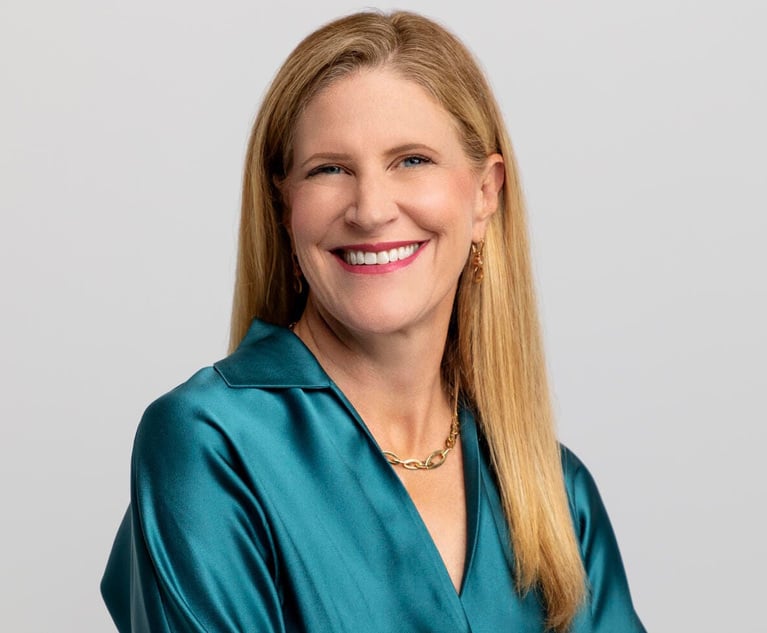UnitedLex to Support Bulk of DXC Technology's In-House Department
According to the two companies, the move marks the largest process outsourcing deal over a five-year period in history.
December 05, 2017 at 05:35 AM
4 minute read

DXC Technology, a technology conglomerate of Computer Sciences Corp. (CSC) and Hewlett Packard Enterprise's Enterprise Services business (HPES), on Tuesday announced that it would adopt technology-enabled legal outsourcing provider UnitedLex to restructure its in-house department. The two companies are calling the deal the largest-ever managed services transaction in the legal industry.
The five-year agreement calls for UnitedLex to provide a team of more than 250 senior-level professionals to support DXC's global legal operations across all client transactions. These professionals, mostly attorneys, engineers and contracts professionals, will work both remotely and on-site and are drawn from nearly 26 geographic locations.
DXC general counsel Bill Deckelman explained that a shift in the industry to high volumes of smaller contracts, paired with the company's April merger, prompted the deal with UnitedLex. He said he felt the legal outsourcing provider could offer the kind of contract management technology that DXC's in-house team needed to keep up with the increasing need for speed around contracting, but for a much-reduced cost overall.
“As part of the merger, we needed to take out cost as a result of putting the two organizations together,” Deckelman noted. “We looked at the traditional ways of reducing staff and offshoring and all the things [organizations] traditionally do and figured out that we couldn't do that, and, at the same time, make the necessary investments in a contracting platform.”
UnitedLex CEO Daniel Reed said the deal differs from similar legal outsourcing transactions in its scale and complexity. “It wasn't just some kind of small reshuffling of the chairs,” he said. “We're actually arranging billion-dollar agreements.”
As part of the deal, Reed said a “substantial” group of DXC professionals will be “rebadged” or transferred from positions at HPES and CSC to UnitedLex but continue to work with DXC's in-house team. UnitedLex professionals will operate as DXC operatives with DXC email addresses and business cards on matters for the technology company.
“We've retained lawyers who cover the waterfront of all the things normally required, such as litigation, regulatory and employment law matters. We still have our staff with DXC. But the transactional, legal operations, immigration and other legal service areas have transferred to UnitedLex,” Deckelman said.
“There's a lot of innovation and transformation happening; the idea is that it's not disruptive,” Reed added of the in-house department's shift.
DXC's in-house department is slated to use UnitedLex's platforms, including its contract management system, for transactions work. Deckelman noted that the platform makes use of Salesforce to manage contract handling and has data analytics capabilities that help provide oversight and reduce risk.
Reed shared his high hopes for the deal's potential to transform legal services delivery. “It is the largest deal in legal to ever occur over a five-year period. There's nothing in the same ZIP code or even country code, quite frankly, of what this effort involved.”
Deckelman said the budgetary and financial realities of both technology servicing companies like DXC and other industries may indeed prompt more companies to take a similar approach to their in-house work.
“I really do think it's going to become more and more of a model. We're moving into this era where digital is starting to deliver on the promise of technology. I know this because this is what we do for our clients,” Deckelman said. He added that demand for technology-enabled efficiency is quickly moving into the legal sector as well.
UnitedLex is certainly not alone in attempting to bring business and technology sector innovations to bear in the legal industry. Alternative legal services provider Axiom has billed itself as “technology-enabled legal services,” and more recently, Atrium launched as parallel law firm-legal tech startup ventures.
This content has been archived. It is available through our partners, LexisNexis® and Bloomberg Law.
To view this content, please continue to their sites.
Not a Lexis Subscriber?
Subscribe Now
Not a Bloomberg Law Subscriber?
Subscribe Now
NOT FOR REPRINT
© 2025 ALM Global, LLC, All Rights Reserved. Request academic re-use from www.copyright.com. All other uses, submit a request to [email protected]. For more information visit Asset & Logo Licensing.
You Might Like
View All
Former Capital One Deputy GC Takes Legal Reins of AIG Spinoff

Khan Defends FTC Tenure, Does Not Address Post-Inauguration Plans

Apple Disputes 'Efforts to Manufacture' Imaging Sensor Claims Against iPhone 15 Technology
Trending Stories
- 1Many LA County Law Firms Remain Open, Mobilize to Support Affected Employees Amid Historic Firestorm
- 2Stevens & Lee Names New Delaware Shareholder
- 3U.S. Supreme Court Denies Trump Effort to Halt Sentencing
- 4From CLO to President: Kevin Boon Takes the Helm at Mysten Labs
- 5How Law Schools Fared on California's July 2024 Bar Exam
Who Got The Work
Michael G. Bongiorno, Andrew Scott Dulberg and Elizabeth E. Driscoll from Wilmer Cutler Pickering Hale and Dorr have stepped in to represent Symbotic Inc., an A.I.-enabled technology platform that focuses on increasing supply chain efficiency, and other defendants in a pending shareholder derivative lawsuit. The case, filed Oct. 2 in Massachusetts District Court by the Brown Law Firm on behalf of Stephen Austen, accuses certain officers and directors of misleading investors in regard to Symbotic's potential for margin growth by failing to disclose that the company was not equipped to timely deploy its systems or manage expenses through project delays. The case, assigned to U.S. District Judge Nathaniel M. Gorton, is 1:24-cv-12522, Austen v. Cohen et al.
Who Got The Work
Edmund Polubinski and Marie Killmond of Davis Polk & Wardwell have entered appearances for data platform software development company MongoDB and other defendants in a pending shareholder derivative lawsuit. The action, filed Oct. 7 in New York Southern District Court by the Brown Law Firm, accuses the company's directors and/or officers of falsely expressing confidence in the company’s restructuring of its sales incentive plan and downplaying the severity of decreases in its upfront commitments. The case is 1:24-cv-07594, Roy v. Ittycheria et al.
Who Got The Work
Amy O. Bruchs and Kurt F. Ellison of Michael Best & Friedrich have entered appearances for Epic Systems Corp. in a pending employment discrimination lawsuit. The suit was filed Sept. 7 in Wisconsin Western District Court by Levine Eisberner LLC and Siri & Glimstad on behalf of a project manager who claims that he was wrongfully terminated after applying for a religious exemption to the defendant's COVID-19 vaccine mandate. The case, assigned to U.S. Magistrate Judge Anita Marie Boor, is 3:24-cv-00630, Secker, Nathan v. Epic Systems Corporation.
Who Got The Work
David X. Sullivan, Thomas J. Finn and Gregory A. Hall from McCarter & English have entered appearances for Sunrun Installation Services in a pending civil rights lawsuit. The complaint was filed Sept. 4 in Connecticut District Court by attorney Robert M. Berke on behalf of former employee George Edward Steins, who was arrested and charged with employing an unregistered home improvement salesperson. The complaint alleges that had Sunrun informed the Connecticut Department of Consumer Protection that the plaintiff's employment had ended in 2017 and that he no longer held Sunrun's home improvement contractor license, he would not have been hit with charges, which were dismissed in May 2024. The case, assigned to U.S. District Judge Jeffrey A. Meyer, is 3:24-cv-01423, Steins v. Sunrun, Inc. et al.
Who Got The Work
Greenberg Traurig shareholder Joshua L. Raskin has entered an appearance for boohoo.com UK Ltd. in a pending patent infringement lawsuit. The suit, filed Sept. 3 in Texas Eastern District Court by Rozier Hardt McDonough on behalf of Alto Dynamics, asserts five patents related to an online shopping platform. The case, assigned to U.S. District Judge Rodney Gilstrap, is 2:24-cv-00719, Alto Dynamics, LLC v. boohoo.com UK Limited.
Featured Firms
Law Offices of Gary Martin Hays & Associates, P.C.
(470) 294-1674
Law Offices of Mark E. Salomone
(857) 444-6468
Smith & Hassler
(713) 739-1250







